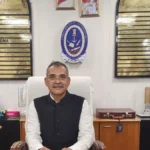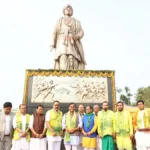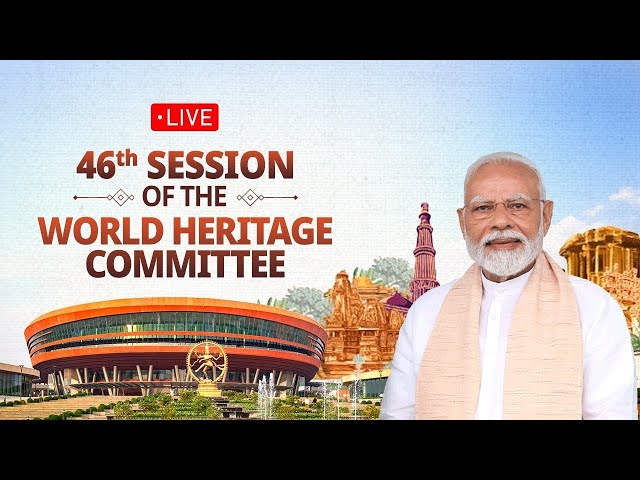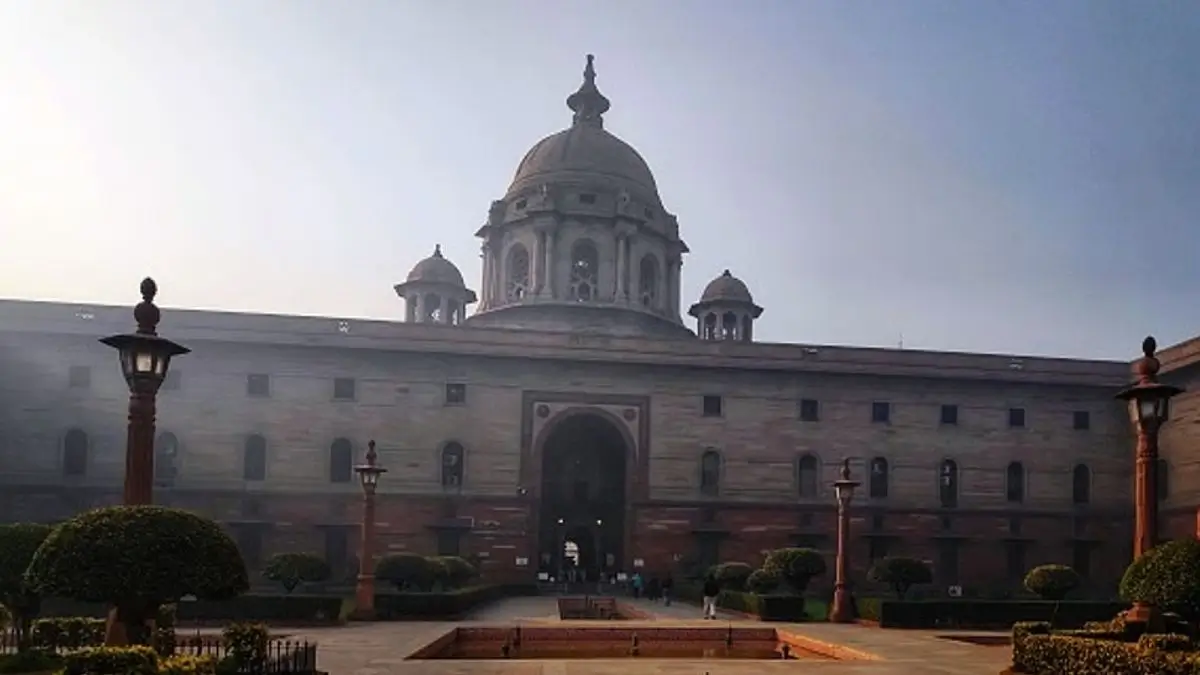PM Modi Inaugurates World Heritage Committee’s 46th Session in New Delhi
PM Modi Opens World Heritage Committee’s 46th Session
On July 21, 2024, Indian Prime Minister Narendra Modi inaugurated the 46th session of the World Heritage Committee in New Delhi. This significant event marks a momentous occasion for India as it hosts this prestigious international gathering. The session brings together global leaders, conservation experts, and cultural heritage professionals to discuss and make decisions regarding the preservation of the world’s cultural and natural heritage.
Significance of the Event
The 46th session of the World Heritage Committee is crucial as it highlights India’s commitment to preserving its rich cultural heritage. The event is being held at a time when the global community is increasingly focused on protecting endangered sites and promoting sustainable tourism. India’s role as the host underscores its growing influence in global heritage conservation efforts and its dedication to safeguarding cultural landmarks for future generations.
Key Agenda and Discussions
During the session, various agenda items will be discussed, including the nomination of new World Heritage Sites and the status of existing sites. The committee will review the conservation efforts for sites on the list and address any emerging threats to these locations. The discussions are expected to cover a wide range of topics, from environmental challenges to the impacts of tourism on heritage sites.
Impact on India’s Heritage Conservation
Hosting the World Heritage Committee’s session provides India with an opportunity to showcase its heritage sites and conservation efforts. It also allows Indian representatives to engage with international experts and gain insights into global best practices. This exposure is likely to benefit India’s own conservation projects and enhance its standing in the global heritage community.
Future Prospects
The outcomes of this session could have long-term implications for heritage conservation policies worldwide. Decisions made by the committee will influence future nominations and the prioritization of conservation efforts. For India, the successful hosting of this event may also pave the way for future international collaborations and projects aimed at preserving cultural and natural heritage.
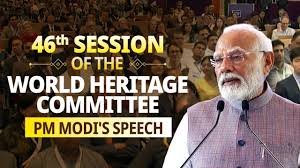
Why This News is Important
Elevation of India’s Global Standing
The inauguration of the 46th World Heritage Committee session by Prime Minister Modi marks a significant achievement for India. Hosting such a prestigious event elevates India’s status on the global stage and reflects its growing role in international heritage conservation efforts. This recognition is crucial for India, as it demonstrates the country’s commitment to preserving its cultural and natural assets.
Influence on Conservation Policies
The session’s discussions and decisions will impact global conservation policies and strategies. The inclusion of new sites on the World Heritage list and the evaluation of existing ones will shape future conservation priorities. India’s involvement in these deliberations provides an opportunity to influence global standards and practices, potentially benefiting its own heritage sites.
Promotion of Sustainable Tourism
The World Heritage Committee’s focus on preserving sites while promoting sustainable tourism aligns with India’s goals of balancing heritage conservation with economic development. The outcomes of this session will provide guidelines and recommendations that can help India manage its heritage sites more effectively, ensuring they remain accessible and preserved for future generations.
Strengthening International Collaborations
The event fosters international collaboration by bringing together experts from various countries. This collaborative environment facilitates the exchange of knowledge and best practices, which can enhance India’s conservation efforts. Strengthening ties with global partners can lead to more effective and innovative approaches to managing and preserving heritage sites.
Boost to National Pride
For Indians, hosting the World Heritage Committee session is a matter of national pride. It highlights the country’s rich cultural legacy and its capacity to manage and protect significant heritage sites. This recognition boosts national morale and reinforces the importance of heritage conservation within India.
Historical Context
The World Heritage Committee
The World Heritage Committee, established in 1972, is a key component of the UNESCO World Heritage Convention. Its primary role is to oversee the implementation of the Convention, which aims to identify and protect cultural and natural heritage of outstanding universal value. The committee meets annually to review the status of World Heritage Sites and make decisions regarding new nominations and conservation efforts.
India’s Heritage Sites
India is home to several UNESCO World Heritage Sites, including the Taj Mahal, Qutub Minar, and the Red Fort. The country has a rich history of cultural and natural landmarks, many of which are recognized globally for their significance. India’s involvement in hosting the World Heritage Committee session reflects its ongoing commitment to preserving these invaluable sites and contributing to global heritage conservation efforts.
Previous Sessions and Their Impact
Previous sessions of the World Heritage Committee have led to significant developments in heritage conservation, including the addition of new sites to the World Heritage list and the implementation of conservation strategies. The outcomes of these sessions often shape international policies and provide guidance for managing and protecting heritage sites worldwide.
Key Takeaways from PM Modi Inaugurates World Heritage Committee’s 46th Session
| Serial Number | Key Takeaway |
|---|---|
| 1 | Prime Minister Narendra Modi inaugurated the 46th session of the World Heritage Committee in New Delhi. |
| 2 | The session highlights India’s growing role in global heritage conservation. |
| 3 | Discussions will cover new nominations and the status of existing World Heritage Sites. |
| 4 | The event provides India an opportunity to showcase its heritage and engage with international experts. |
| 5 | Outcomes of the session will influence global conservation policies and practices. |
Important FAQs for Students from this News
1. What is the World Heritage Committee?
The World Heritage Committee is a body established under the UNESCO World Heritage Convention. It is responsible for overseeing the implementation of the Convention, which aims to protect cultural and natural heritage sites of outstanding universal value. The committee meets annually to review and make decisions about World Heritage Sites.
2. Why was the 46th session of the World Heritage Committee held in New Delhi?
The 46th session of the World Heritage Committee was held in New Delhi to recognize and showcase India’s commitment to heritage conservation. Hosting the session highlights India’s role in global heritage discussions and provides an opportunity to engage with international experts.
3. What are some key topics discussed during the World Heritage Committee sessions?
Key topics typically include the nomination of new World Heritage Sites, the status and conservation efforts of existing sites, and addressing threats to these locations. The committee also discusses sustainable tourism and the impact of environmental changes on heritage sites.
4. How does the World Heritage Committee impact global conservation policies?
The decisions made by the World Heritage Committee influence global conservation policies by setting guidelines and standards for the protection and management of heritage sites. This includes prioritizing sites for conservation, recommending actions, and shaping best practices.
5. What benefits does hosting the World Heritage Committee session bring to the host country?
Hosting the session provides the host country with international recognition, an opportunity to showcase its heritage sites, and a platform to engage with global experts. It can also lead to enhanced collaboration and support for the country’s own heritage conservation efforts.
Some Important Current Affairs Links




